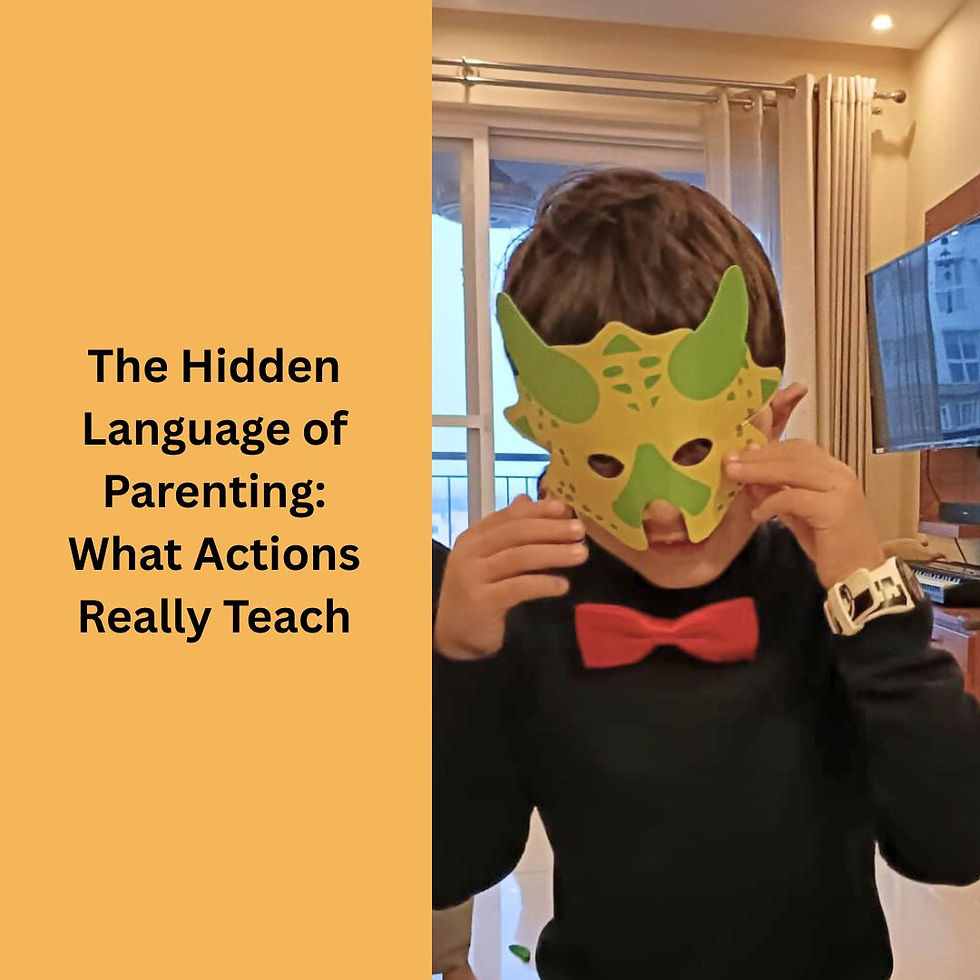The Art of Parenting Through Storytelling: Lessons That Last
- Team Playfull

- Sep 7, 2025
- 3 min read
Table of contents
Introduction
What if bedtime stories and casual anecdotes could do more than entertain—what if they could shape values, build confidence, and inspire imagination? Imagine harnessing the power of storytelling to teach life’s most valuable lessons.
In today’s fast-paced world, parents often overlook storytelling as a tool for teaching values and fostering emotional connections. Yet, research shows that stories have a unique ability to make lessons memorable and meaningful.
This blog on The Art of Parenting Through Storytelling: Lessons That Last explores how storytelling can become an integral part of parenting, offering strategies to weave life lessons into narratives and spark curiosity and growth in children.
Why Stories Matter: The Science Behind Storytelling
The Psychology of Storytelling
Stories engage emotions, stimulate imagination, and improve memory. Children are more likely to internalize lessons when they are presented through compelling narratives.
Research and Studies
According to Dr. Bruce Perry, storytelling activates multiple parts of the brain, making it easier for children to retain information and relate emotionally to characters and events.
Emotional Impact
Through stories, children learn empathy, problem-solving, and resilience. Whether it’s a tale about overcoming fears or showing kindness, these lessons shape their worldview.
Weaving Lessons into Stories: Practical Parenting Strategies
Creating Purposeful Stories
Character-Driven Values: Craft stories where characters face dilemmas and model courage, honesty, and kindness.
Real-Life Parallels: Use family anecdotes or historical events to make stories relatable.
Interactive Storytelling: Involve children by letting them contribute ideas or alternative endings.
Practical Strategies
Story Prompts: Start with "Once upon a time…" and let your child help build the narrative.
Moral Highlights: End stories with reflective questions like, "What would you have done?" or "What did the character learn?"
Daily Rituals: Incorporate storytelling into bedtime routines, car rides, or family gatherings.
Expert Insights
According to Joseph Campbell’s "Hero’s Journey," stories with challenges and transformations mirror real-life growth, inspiring children to see themselves as heroes in their own lives.
Overcoming Storytelling Challenges
Common Barriers
Lack of Time: Parents often feel too busy to tell stories.
Creative Blocks: Many parents believe they lack the creativity to craft engaging tales.
Age Gaps: Finding age-appropriate stories for children at different developmental stages can be tricky.
Solutions
Short Stories: Focus on 5-minute stories that fit into busy schedules.
Story Resources: Use books, audiobooks, and folklore to spark inspiration.
Interactive Methods: Encourage children to act out stories or draw illustrations to bring them to life.
Success Stories
Amrita Sher-Gil: India’s celebrated artist often credited her mother’s rich storytelling for sparking her imagination and passion for art, proving how stories can nurture creativity.
Sudha Murthy: Renowned author Sudha Murthy’s books are filled with simple yet profound life lessons, inspired by her own childhood stories and experiences.
Conclusion
Storytelling is a timeless tool for parenting that connects, inspires, and educates. By embedding values into narratives, parents can teach life lessons in ways that are engaging and memorable.
What stories are you already telling your child? How can you make storytelling a regular part of your parenting approach?
Whether through folklore, family anecdotes, or spontaneous tales, every story has the power to shape your child’s heart and mind. Start today—one story at a time.
You must also understand that storytelling is a key component of communicating with your child. To enhance this, we recommend examining your dominant parenting style, as it significantly influences your communication approach.
If you're unsure of your style, we suggest you to discover which is your dominant parenting style by taking our free parenting style test to discover it.




Comments